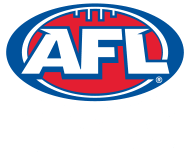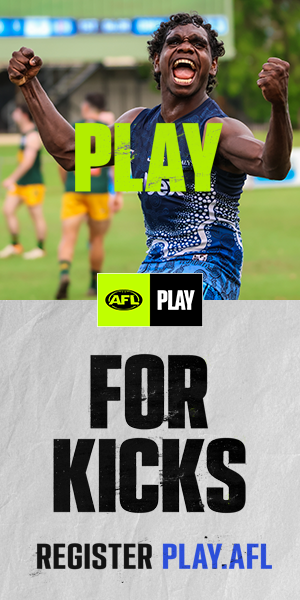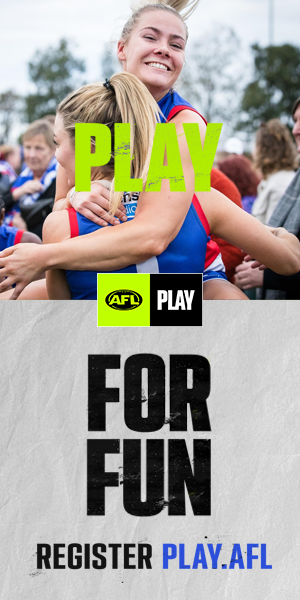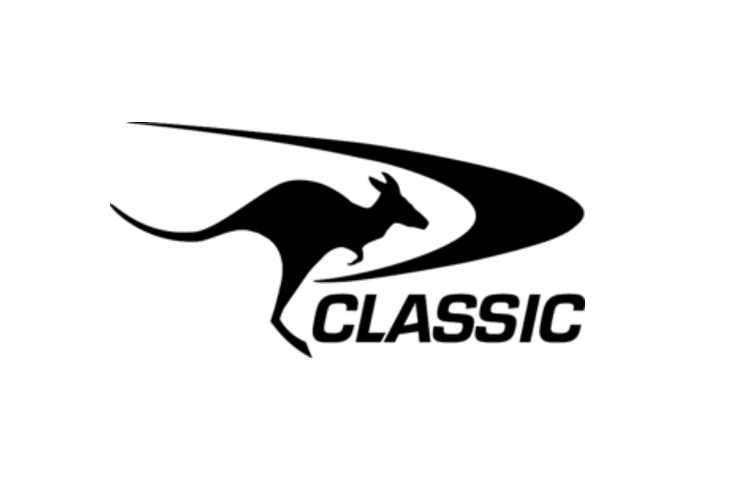Leo Camm was of an impact man of community football in Queensland. And not in one region or two but five different regions. From Sandgate to Surfers Paradise, Mackay to the Darling Downs, and a little bit more, wherever he went good things happened.
Born in Scottsdale in north-east Tasmania but a Queenslander from age four, he was the sort of man who didn’t do things in half measures. If he was in, he was all-in. He was a leader of men, a leader of football clubs and even a leader of football leagues.
After growing up on the Redcliffe Peninsula, his football journey began at Sandgate High School when he was introduced to the game aged 11 by legendary Sandgate official Vince Fagan. Great mates with Queensland Team of the Century fullback Dick Verdon and fellow Queensland Hall of Famer Tom Broadbent, he won two junior premierships for the Hawks, represented Queensland at Under-18 level, was Reserve Grade vice-captain and most consistent player, and played in the seniors.
He moved to the Gold Coast and joined Surfers Paradise, a club that was formed in 1961 and won its first Gold Coast League flag in 1963 as the competition struggled to establish a strong footing. In his first season with the Demons in 1964 he was the club’s first captain-coach and won the inaugural Gold Coast League Best & Fairest Medal. He played in the Gold Coast representative side and later served as President of the club that won the League’s first premiership hat-trick in 1967-68-69.
Originally a carpenter, he made a shrewd life decision early when he married his boss’ daughter, but soon joined Repco in a management role that saw him move often. It was a case of ‘have job – will travel – and will get involved in community football.’
Next step was Mackay, where players from across Queensland were flocking as the mining and the sugar industry took off in the late 1960’s. Camm joined forces with ex-Cairns player Mick Miller, among others, and together they formed the Mackay Football League.
As legend has it, they were enjoying a beer in a local pub and were told by some local rugby league types that ‘Australian rules will never take off here’. So they set out to prove otherwise. Miller posted an advertisement in the Daily Mercury, and Camm, an experienced football pioneer, took charge of promotions. Only five people attended the first meeting but there were 15 at the second meeting and they were away. The four-team League was formed in April 1970, with Camm serving as League president from 1970-73.
Returning south, he was an umpire in the old SQAFA competition, served on the League administration and spent time in Ipswich football before moving again, this time to the Downs.
He joined Coolaroo Football Club in 1974, and served the game in Toowoomba for 15 years, playing in the representative side, coaching, umpiring, sitting on the tribunal and launching live television and radio coverage. He was League President in 1976-77 and 1984-85, and a DDAFL selector and the DDAFL representative team manager for 11 years. Especially interested in the juniors, he also coached the Under 17 Coolaroo team in pre-season matches in Brisbane.
There were many a bus trip when he was driver, team manager, masseuse, strapper, timekeeper and organiser of all – and always with a broad smile and boundless energy. He was never happier than being involved with ‘real’ football, and has been recognised annually since 1999 when the Leo Camm Rosebowl Trophy is presented to the Coolaroo Rookie of the Year.
It was a real Camm family affair in Toowoomba – wife Lesleigh looked after daughter Leita and sons Rod and Drew so Leo could look after the football. There was a lovely moment in 1982 when a 17-year-old Rod played in the same Coolaroo Reserves side with his father, even if all didn’t go quite to plan. “I got a spray when I kicked it to him down the wing and missed him, but I always maintained there was nothing wrong with my kick – he was just in the wrong spot,” son Rod recalled with a grin.
By that stage Camm Snr only filled in when numbers were short. A fortnight later he was on duty in the seniors and kicked eight goals against Goondiwindi. He found it impossible to give the game away and played his last official match in 1985 in the South Burnett, where he made it his mantra to take on the opposition’s best player. He was ‘about 51’.
“He loved the game but most happy at grassroots level,” Rod said.
“He’d rather be out helping and rubbing shoulders at the local club than going to the AFL. He got most satisfaction out of building the game and the men in the game, and as a family we are really proud to know that wherever he went he did he good job.”
Indeed, when he died in Toowoomba in May 2022 on the eve of his 63rd wedding anniversary following complications with Covid, there were collective tributes from across the state. He was remembered as “a true gentleman’ of the game – a man who knew when to be tough and when to take a softer approach.”
Marj Shaw, an institution in Toowoomba football and a fellow Queensland Football Hall of Famer, said of her dear friend, who was a life member of Surfers Paradise and the DDAFL, and a long-serving enthusiastic member of Coolaroo, “Without fail, he would see that I got to my car safely after every night meeting we attended. He was a true gentleman who treated everyone with a great deal of respect and in turn they responded accordingly. He had a jovial, positive attitude toward everything he did and loved having the opportunity to progress football at any level.”



























































